The plan launched by the Foreign Ministry to try to de-escalate the new crisis with the United States

While awaiting the arrival of Ambassador Daniel García-Peña in Bogotá—his arrival is scheduled for Friday night, as of press time—after being summoned for reciprocal consultations, the Colombian Foreign Ministry has launched a diplomatic strategy to try to de-escalate the new chapter of tension with the United States.
The last few hours have revolved around two specific actions: rapprochements with the State Department and contacts with various US actors.
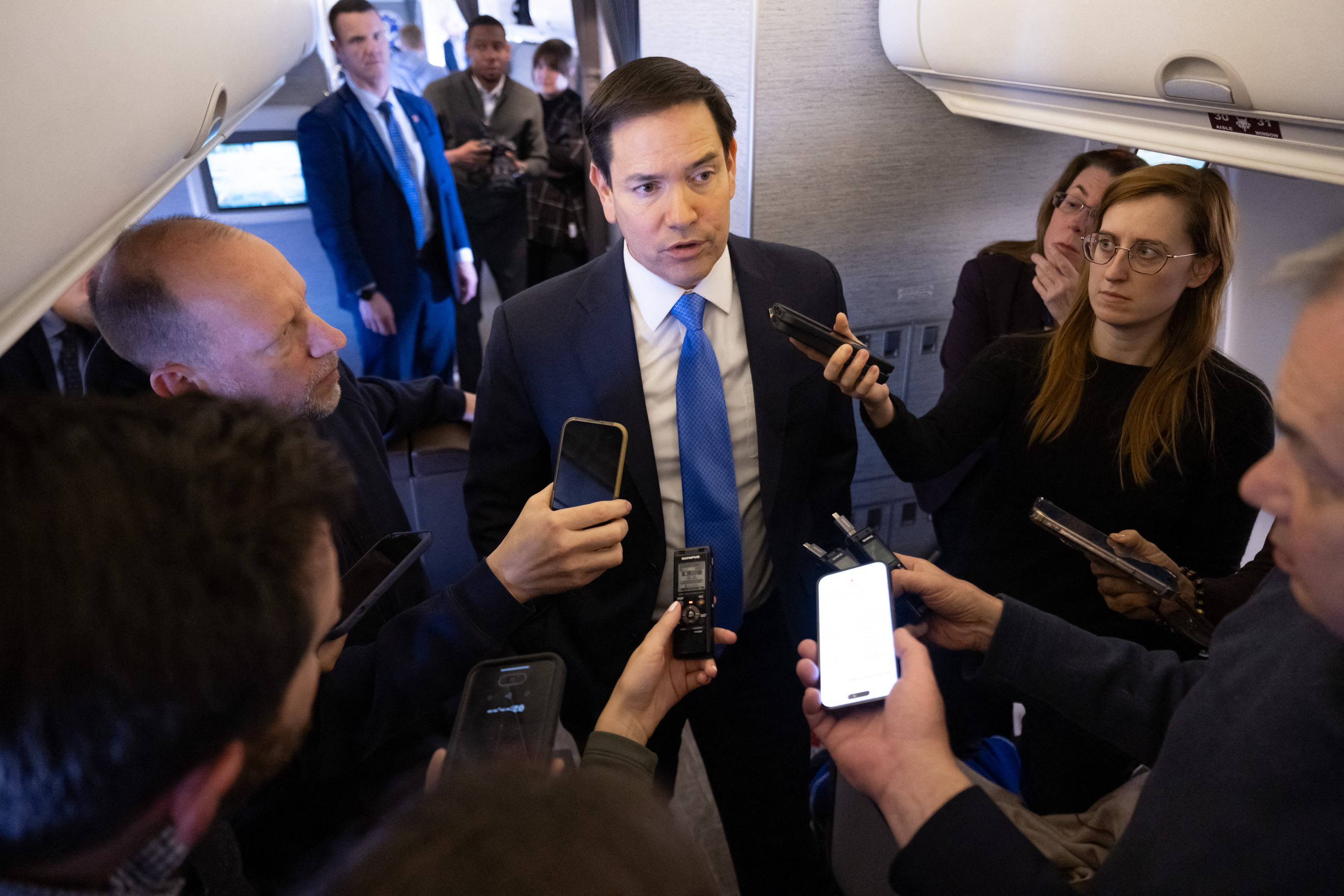
U.S. Secretary of State Marco Rubio flies to Jeddah, Saudi Arabia. Photo: AFP
Although the Ministry of Foreign Affairs is unclear as to what "unfounded and reprehensible" statements the White House referred to in support of the recall of its chargé d'affaires, John McNamara, both the mission in Washington and the San Carlos Palace set about conveying calm and stability to the agency in charge of American foreign policy from early on.
The messages include contextualization of President Gustavo Petro's recent statements mentioning Secretary of State Marco Rubio. They also emphasize the clarification the president made in his speech Thursday during the inauguration of Constitutional Court Justice Héctor Carvajal.
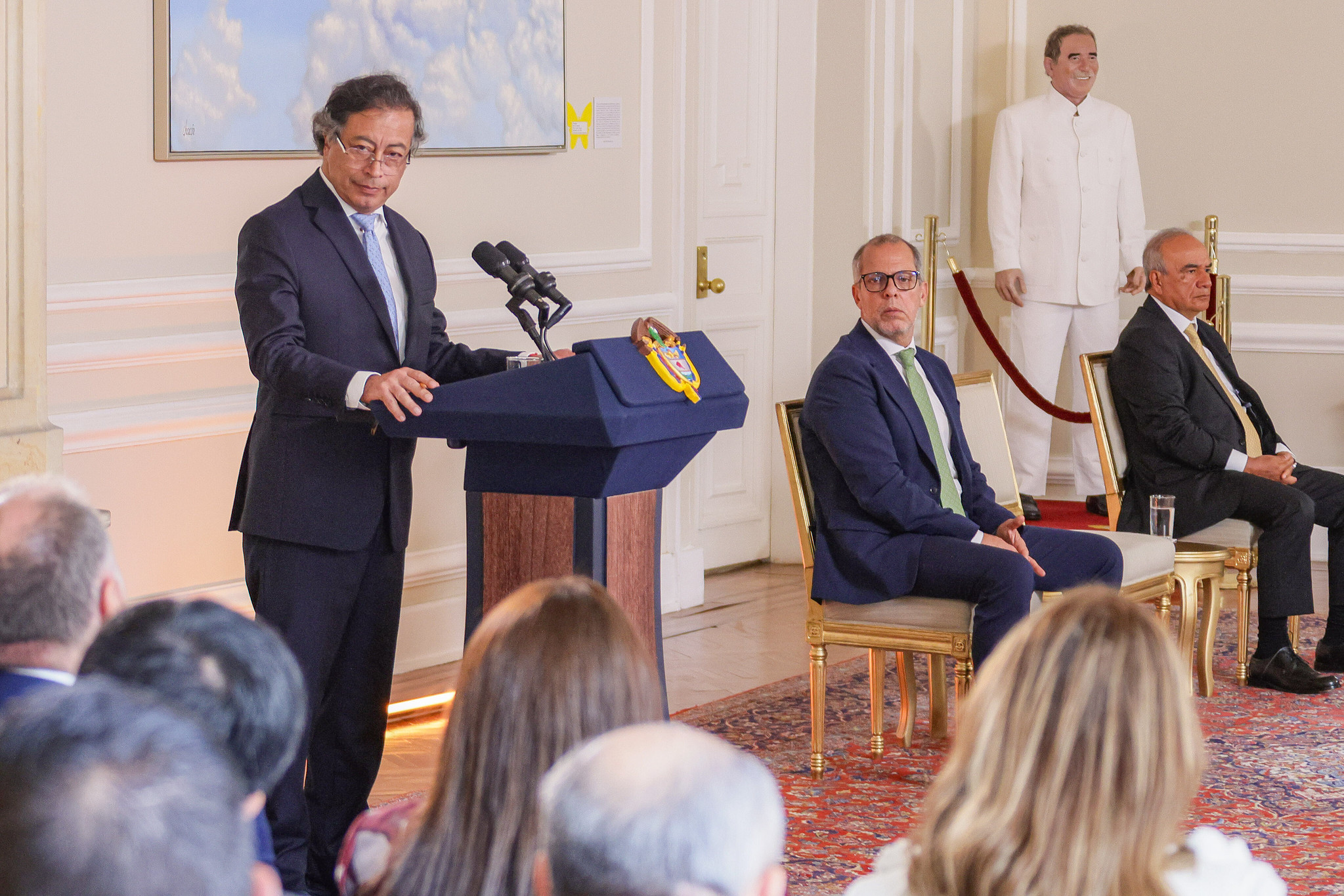
President Gustavo Petro during the inauguration of Judge Carvajal. Photo: Presidency
" I don't believe Marco Rubio is involved in a coup d'état (...) because the far-right figures involved didn't make it to Marco Rubio's office, but to someone else's, and I'm not going to be a jerk about that. That's a matter for the Attorney General to determine, not me, " the president stated.
In parallel, and similar to what happened on the afternoon of January 26th when the first diplomatic crisis erupted with Donald Trump over the planes carrying Colombian deportees, dialogue has been sought with congressmen and various civil society actors, such as think tanks . "Friends of the country," the Foreign Ministry calls them. All of this is intended to reinforce the values that have kept the bilateral relationship strong.
And Laura Sarabia, although she resigned from her position due to disagreements over the handling of passport issuance, has not put this dispute aside and has been leading efforts as one of her final duties as foreign minister, as was the case with Luis Gilberto Murillo before leaving the government.
“This isn't just about diplomatic relations. It's about people. About real lives. About shared hopes. We must continue to strive for a close relationship, with mutual respect, and with ongoing, frank, and constructive dialogue . Because when two peoples recognize each other as allies—not out of convenience, but out of conviction—they can build a future together,” Sarabia noted.
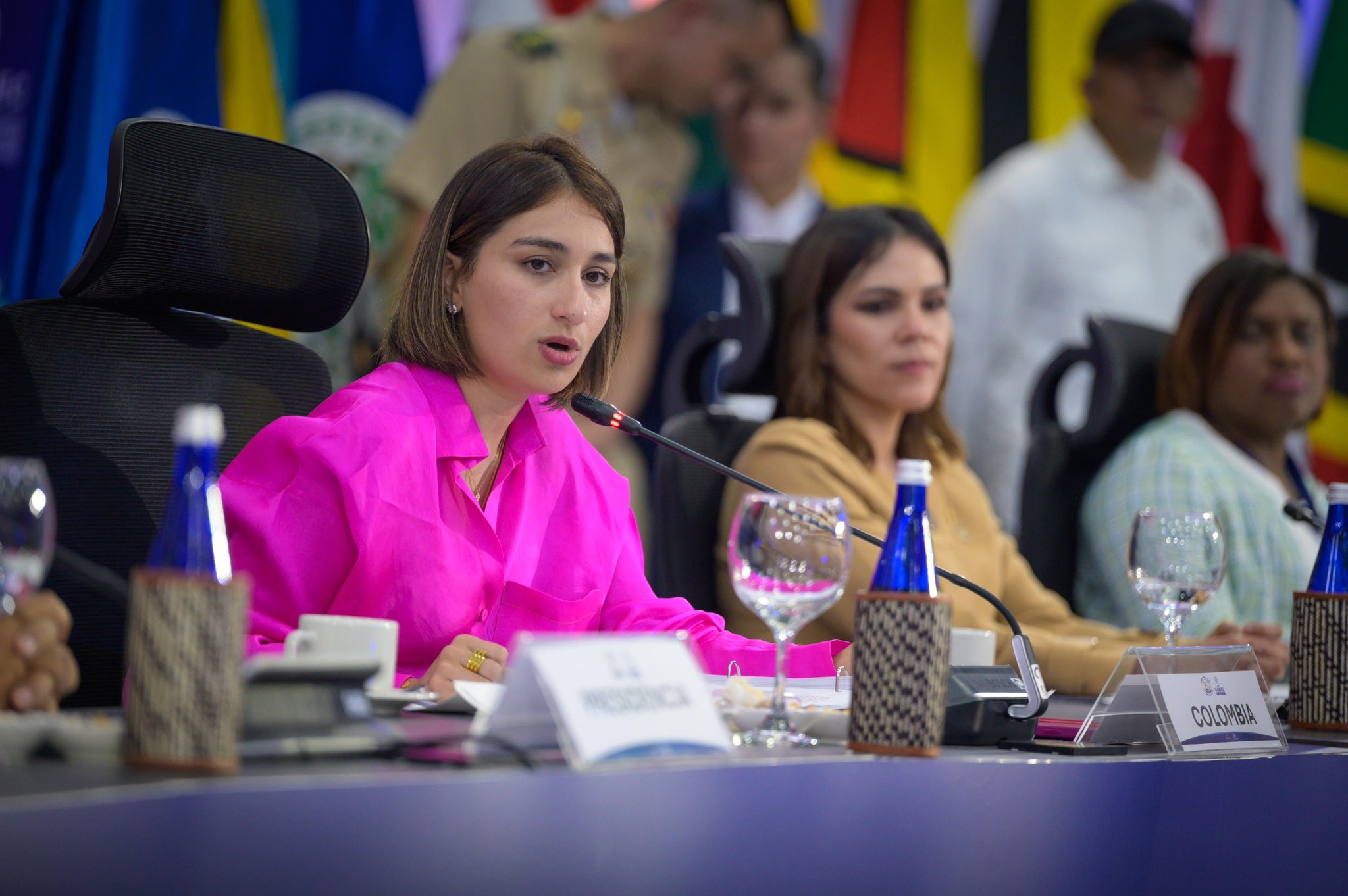
Foreign Minister Laura Sarabia replaced President Petro at the day's events. Photo: Foreign Ministry
The Vice Minister of Multilateral Affairs, Mauricio Jaramillo, expressed a similar sentiment: "We share more than two centuries of good relations with the United States, which have recently consolidated into an alliance that has deepened over the years, government after government, even with administrations of different political stripes," he stated.
“Based on Colombia's sovereignty and national dignity, it is important to insist on channels of dialogue and diplomacy. Recalling ambassadors for consultations does not constitute a severance of relations, but it is clear that there are annoyances and concerns between the governments of the United States and Colombia ,” stated Jorge Rojas, former vice chancellor and former director of the Colombian National Assembly (DAPRE).
Recalling ambassadors for consultations does not constitute a severance of relations, but it is evident that there is annoyance and concern between the governments of the United States and Colombia.
In Bogotá, they are aware that this moment demands intelligent, discreet, and prudent diplomacy. The costs of an escalation could be felt in key areas such as security, migration, trade, and the fight against drugs. In fact, less than a week ago, Vice Minister Jaramillo and Ambassador Daniel García-Peña met with McNamara and seven congressmen, both Republican and Democratic, in Cartagena to discuss these common issues.
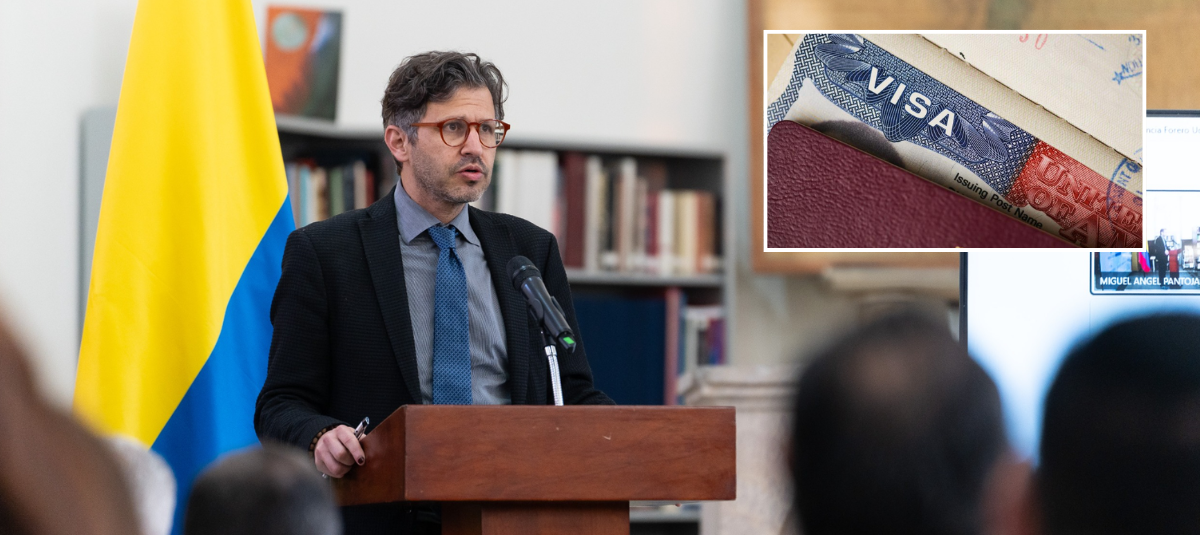
Deputy Minister Mauricio Jaramillo Jassir. Photo: Foreign Ministry - Private Archive
"I know that tensions between governments can arise, but what we must never lose is the ability to maintain open diplomatic channels and permanent, effective, and discreet dialogue. It is in this space that the nation's interests are protected," Murillo said.
The unions also called for restraint and dialogue. “We must demand responsibility and seriousness from the Colombian government in its handling of international relations, especially with our main historical ally, the United States. Colombia has invested many years and resources to become a reliable country in the Western Hemisphere, especially within the democratic economies and societies of the world,” said ANDI President Bruce MacMaster.
The consultation The idea is for the consultation with Ambassador García-Peña to take place as quickly as possible. In that sense, it would be this weekend. While these meetings don't have a set format, the diplomat is expected to provide President Petro with context about what's happening in the United States to explore the best solutions . Vice versa, McNamara would do the same in Washington.
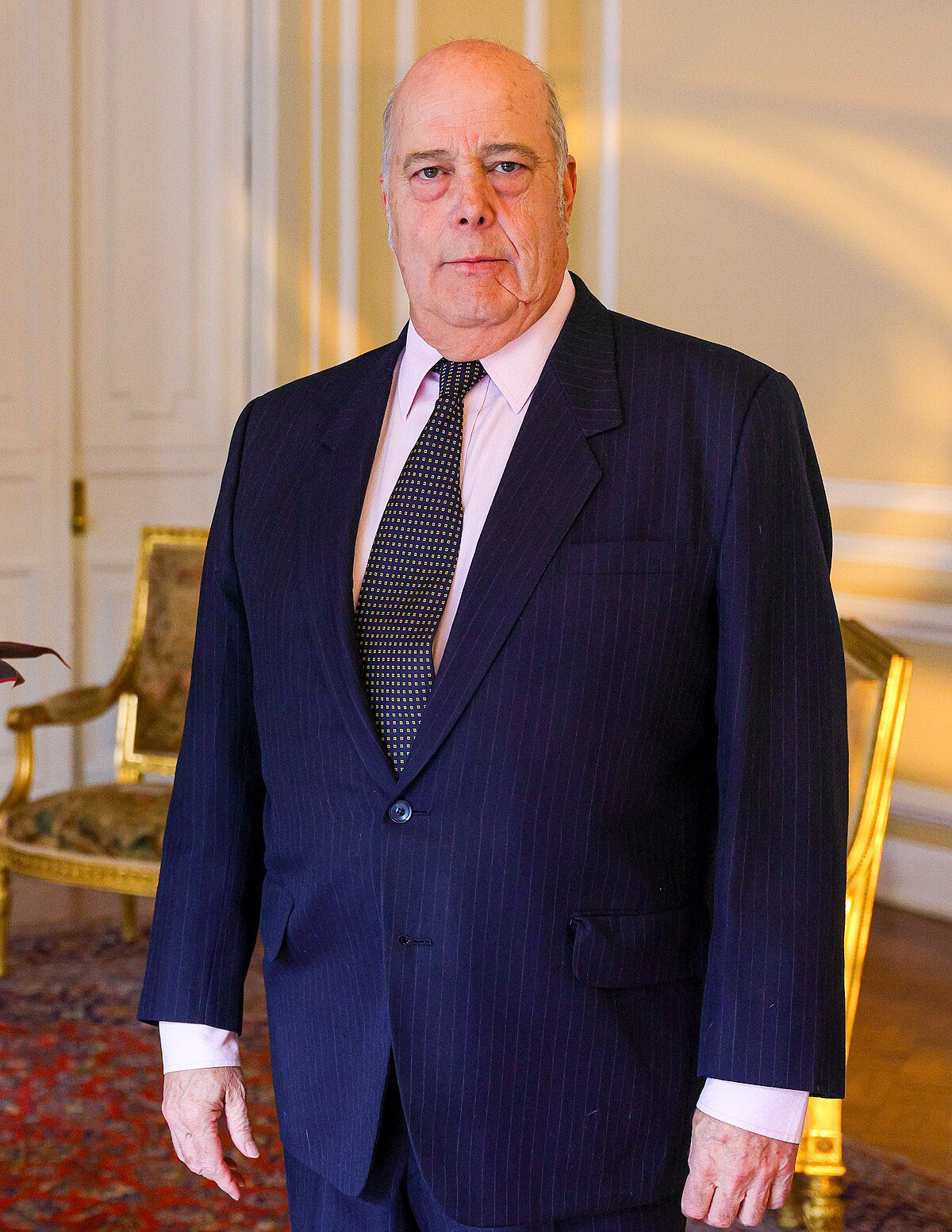
Daniel García-Peña Photo: Colombian Embassy in the U.S.
Given the relevance of this new crisis, President Petro's presence at the BRICS summit scheduled for July 6 and 7 in Rio de Janeiro, Brazil, is in doubt. The president is expected to remain in Colombia to address this and other issues. In a tweet on his X account, he explained that the discussion will not only focus on the tension, but also review the development of the bilateral agenda. According to Petro, this agenda revolves around the decarbonization of the economy and the energy transition, especially with an energy interconnection project. He also specified that another pillar of the relationship is an "immigration treaty recognizing the right of the United States to receive or reject its visitors, based on human dignity."
Meanwhile, García-Peña called for restraint in public statements from both countries. “Speculative or inflammatory opinions do not contribute to strengthening bilateral conservation or to safeguarding a relationship based on mutual respect, cooperation, and shared understanding,” he said.
Juan Pablo Penagos Ramirez
eltiempo





